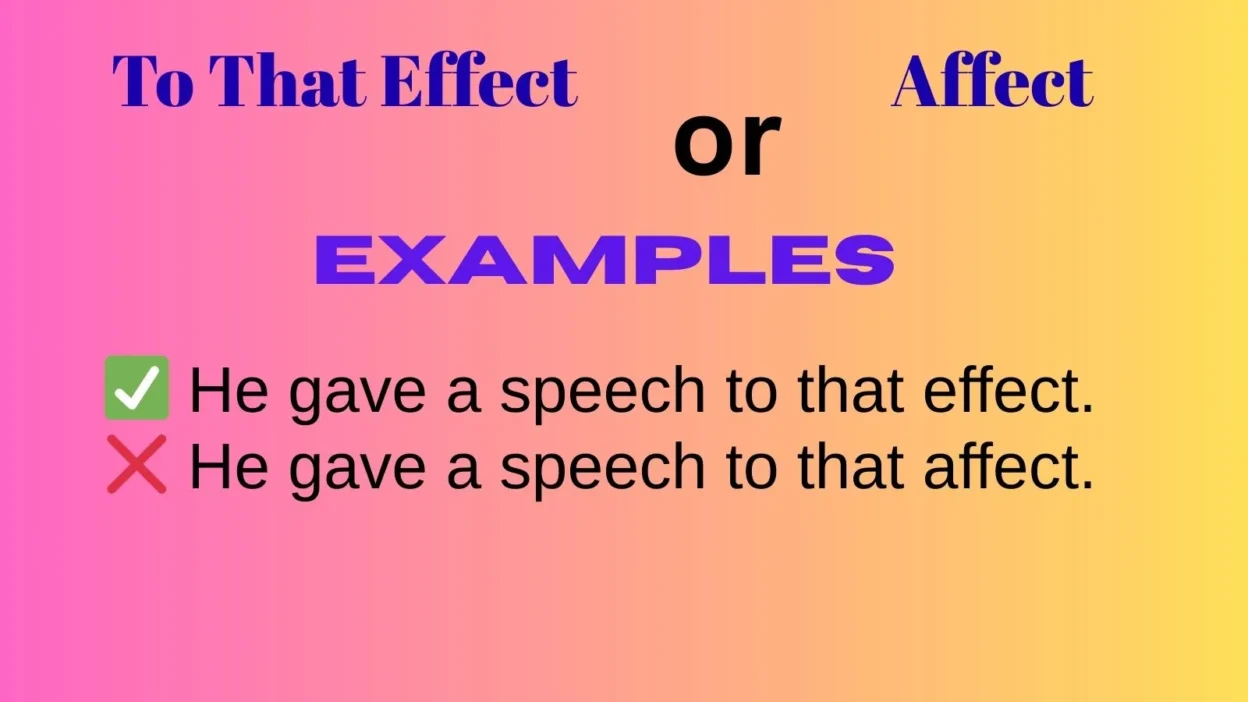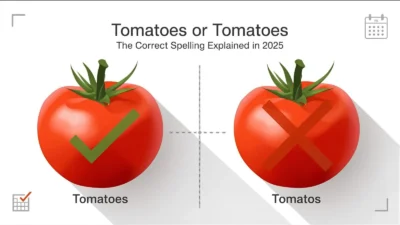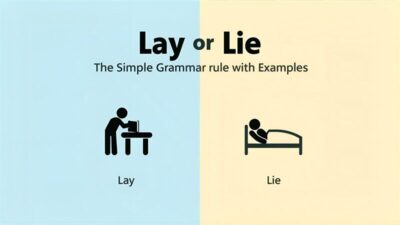Have you ever paused while writing an email or report, wondering whether to say “to that effect” or “to that affect”?
You’re not alone. This phrase is one of the most common points of confusion in English.
The problem comes from the tricky words effect and affect. Both look similar, sound similar, and relate to change or influence, but they play very different roles in grammar.
People often search for this keyword because they want quick clarity: which one is right, why it matters, and how to avoid embarrassing mistakes in professional or academic writing.
In this article, we’ll break down the meaning, history, and correct usage of “to that effect”, while also showing why “to that affect” is incorrect.
We’ll explore spelling differences between British and American English, common mistakes, real-life examples, and even Google Trends data on how often this confusion appears worldwide.
By the end, you’ll have a clear and simple answer—and the confidence to use the phrase correctly every time.
To That Effect or Affect – Quick Answer
✅ The correct phrase is “to that effect”, not “to that affect.”
- Effect (noun): means result or outcome.
- Affect (verb): means to influence or impact.
👉 Example:
- Correct: He said he was busy, or words to that effect.
- Wrong: He said he was busy, or words to that affect.
The Origin of “To That Effect”
The phrase “to that effect” comes from older English, where effect meant “result” or “meaning.” Saying “to that effect” literally means “with that meaning” or “producing that result.”
The confusion arises because English has two similar-looking words:
- Effect (from Latin effectus meaning “accomplishment, result”).
- Affect (from Latin afficere meaning “to influence, to act upon”).
Over centuries, both entered English, but their roles split: effect stayed mostly as a noun, while affect became a verb. This difference explains why only “to that effect” is correct.
British English vs American English Spelling
Both British and American English agree: the correct phrase is “to that effect.” There is no accepted spelling of “to that affect.”
However, spelling rules differ in other word pairs, which adds to the confusion:
| Word | British English | American English |
| Effect vs Affect | ✅ Effect | ✅ Effect |
| Colour / Color | Colour | Color |
| Defence / Defense | Defence | Defense |
| Travelling / Traveling | Travelling | Traveling |
As seen, “effect/affect” doesn’t change spelling across regions, which means the mistake isn’t regional—it’s purely grammatical.
Which Spelling Should You Use?
- US Audience: Always write “to that effect.”
- UK/Commonwealth Audience: Same rule applies—“to that effect.”
- Global Audience: Stick with “to that effect.” It’s the only correct form everywhere.
If you write “to that affect,” readers may think it’s a typo or a misunderstanding of English grammar.
Common Mistakes with “To That Effect”
- ❌ She nodded to that affect. → ✅ She nodded to that effect.
- ❌ The teacher gave a warning to that affect. → ✅ The teacher gave a warning to that effect.
- Confusing affect as a noun (used only in psychology for “emotional expression”).
- Overusing synonyms—sometimes writers avoid the phrase altogether, leading to awkward sentences.
Tomatoes or Tomatos – The Correct Spelling Explained with examples in 2025
“To That Effect” in Everyday Examples
- Email: He requested more time, or words to that effect.
- News: The president made a statement to that effect during the press briefing.
- Social Media: She hinted (to that effect) in her latest post.
- Formal Writing: The contract includes a clause to that effect.
Etc or Ect: The Correct Spelling with Examples in 2025
To That Effect – Google Trends & Usage Data
Google Trends data shows that searches for “to that effect or affect” peak in English-speaking countries such as the US, UK, Canada, and India. This suggests a global confusion about the correct spelling. In all cases, dictionaries and style guides confirm: only “to that effect” is correct.
| Country | Popular Search Form | Correct Usage |
| United States | to that affect | ❌ Wrong |
| United Kingdom | to that effect | ✅ Right |
| Canada | to that affect | ❌ Wrong |
| India | to that effect | ✅ Right |
FAQs on “To That Effect or Affect”
1. What does “to that effect” mean?
It means with that meaning or having that result.
2. Is “to that affect” ever correct?
No. It is always a mistake in standard English.
3. Why do people confuse effect and affect?
Because they look and sound similar, but one is a noun (effect) and the other a verb (affect).
4. Can “affect” ever be a noun?
Yes, in psychology: “flat affect” means lack of emotional expression. But not in this phrase.
5. How can I remember the difference?
Think: Effect = End result; Affect = Action.
6. Is “words to that effect” formal or casual?
It’s neutral—fine for both professional and casual writing.
7. Are there synonyms for “to that effect”?
Yes: in that sense, with that meaning, along those lines.
Conclusion:
The confusion between “to that effect” and “to that affect” is common, but the rule is simple: only “to that effect” is correct. The word effect (noun) means result or meaning, which fits the phrase. Affect is a verb and cannot be used here.
Whether you’re writing emails, reports, or academic papers, remember: “to that effect” is universally accepted in US, UK, and global English.
Using the wrong form (“to that affect”) may hurt your credibility, while the correct version shows attention to detail and professionalism.
The next time you find yourself hesitating, recall this guide: Effect = result, Affect = action. With that clarity, you’ll never make the mistake again.



